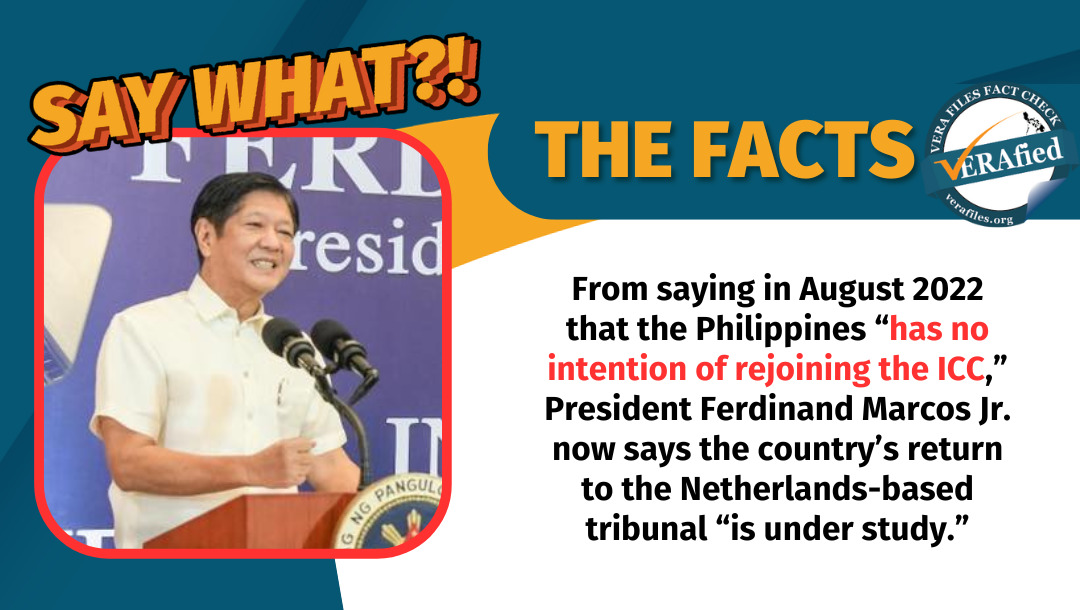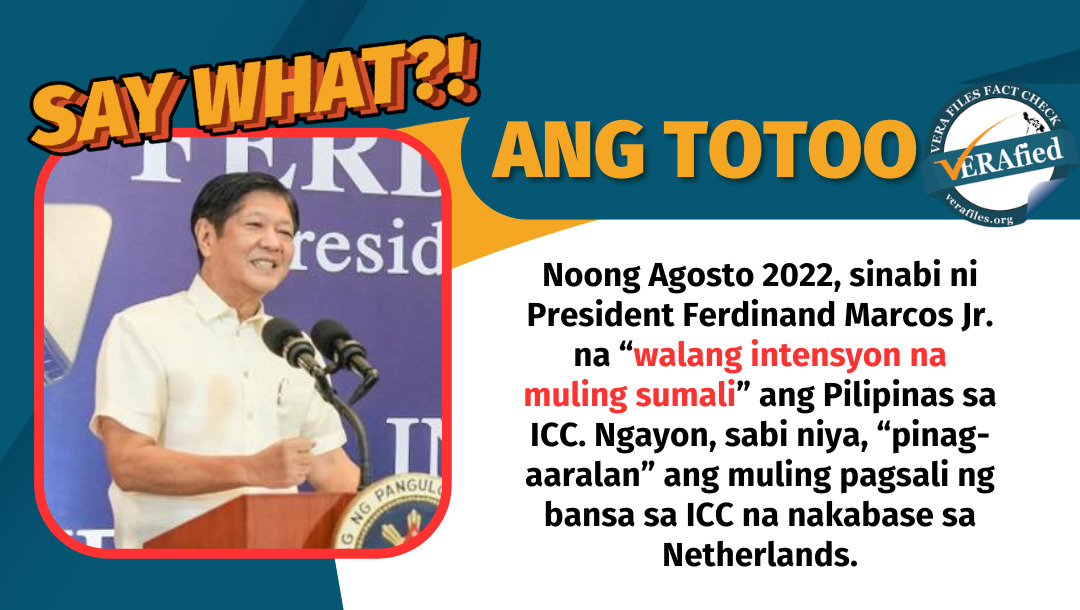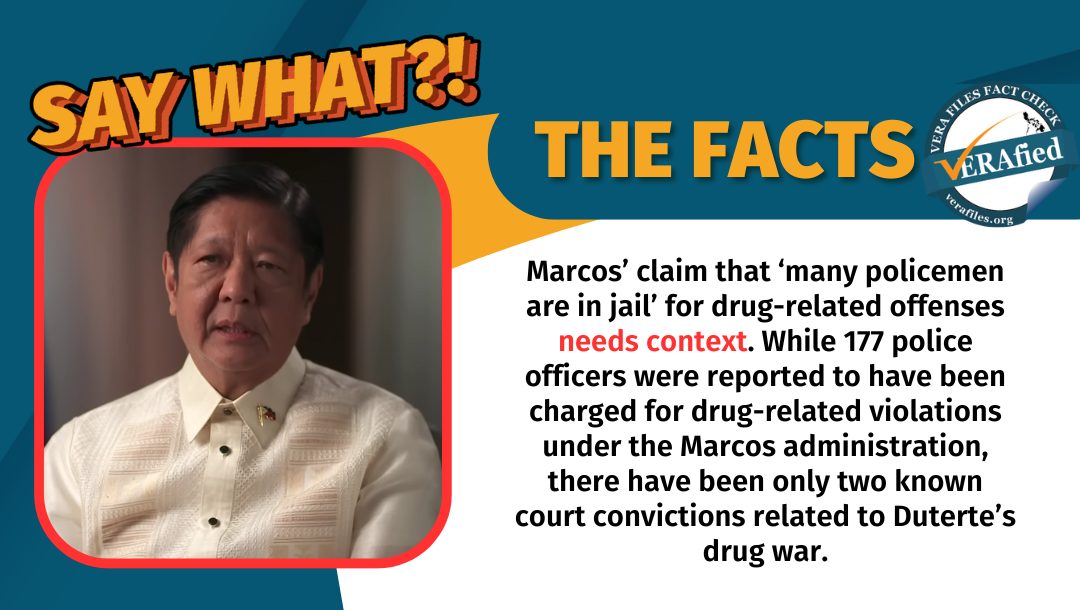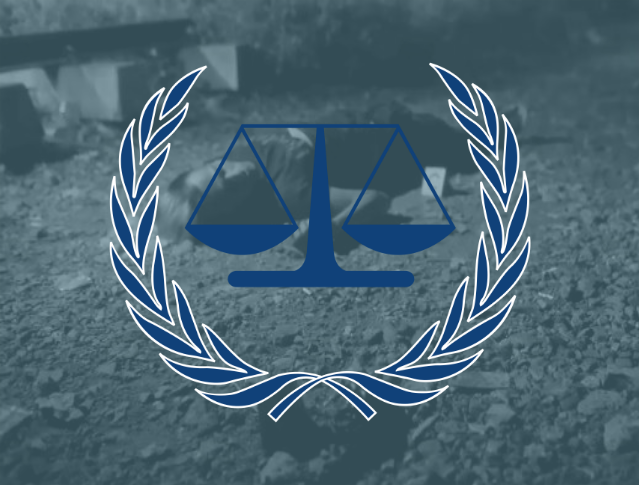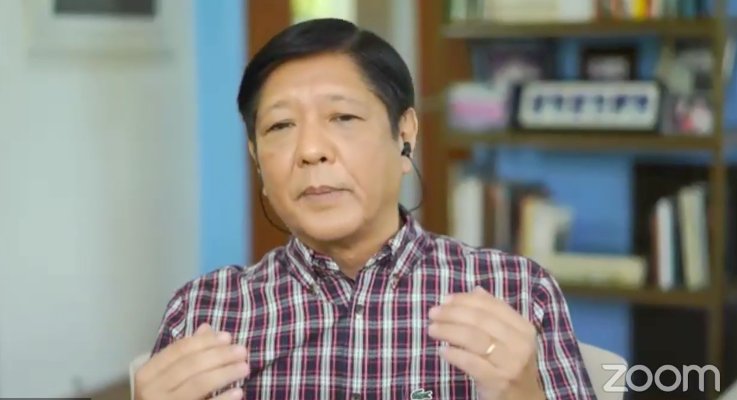In a March 4 interview on Australian Broadcasting Corporation (ABC) News, President Ferdinand Marcos Jr. said the International Criminal Court (ICC) has no jurisdiction to investigate drug war-related killings in the Philippines because the Netherlands-based tribunal was “formed to provide justice to areas where there is no judiciary.”
This is misleading. VERA Files Fact Check has debunked similar claims at least four times before.
Read FACT CHECK: Imee Marcos MISLEADS in claim that ICC has ‘no jurisdiction’ over drug war probe since PH has ‘functioning’ courts, FACT CHECK: Dela Rosa’s statement on ICC complementarity principle is misleading, FACT CHECK: Jinggoy Estrada’s statement on ICC complementarity principle misleads, FACT CHECK: Remulla repeats ICC jurisdiction, complementarity principle claims lacking context
STATEMENT
When asked by ABC journalist Sarah Ferguson if he would allow the ICC to investigate the killings under former president Rodrigo Duterte’s war on drugs, Marcos reiterated that his administration does not recognize the jurisdiction of the ICC. He explained:
“We view it as a threat to sovereignty, simply because the ICC was formed to conduct, to provide justice to areas where there is no, there is no judiciary, where there is no court system, where there is no police, where there is no peace and order, and that’s not the Philippines. And, therefore, I don’t think that their investigations or their concerns apply to the Philippines.”
Source: ABC News In-depth, Single ‘mistake’ could trigger South China Sea conflict, warns Philippines President | 7.30, March 4, 2024, watch from 9:11 to 9:38
In March 2018, the Philippines withdrew from the ICC in reaction to then-ICC prosecutor Fatou Bensouda’s launching of a preliminary examination into the drug war killings under the Duterte administration. The country’s withdrawal from the Rome Statute took effect on March 17, 2019.
FACT
Nothing in the Rome Statute – the treaty that established the ICC – states that the Netherlands-based tribunal was formed to provide justice to areas with no justice system.
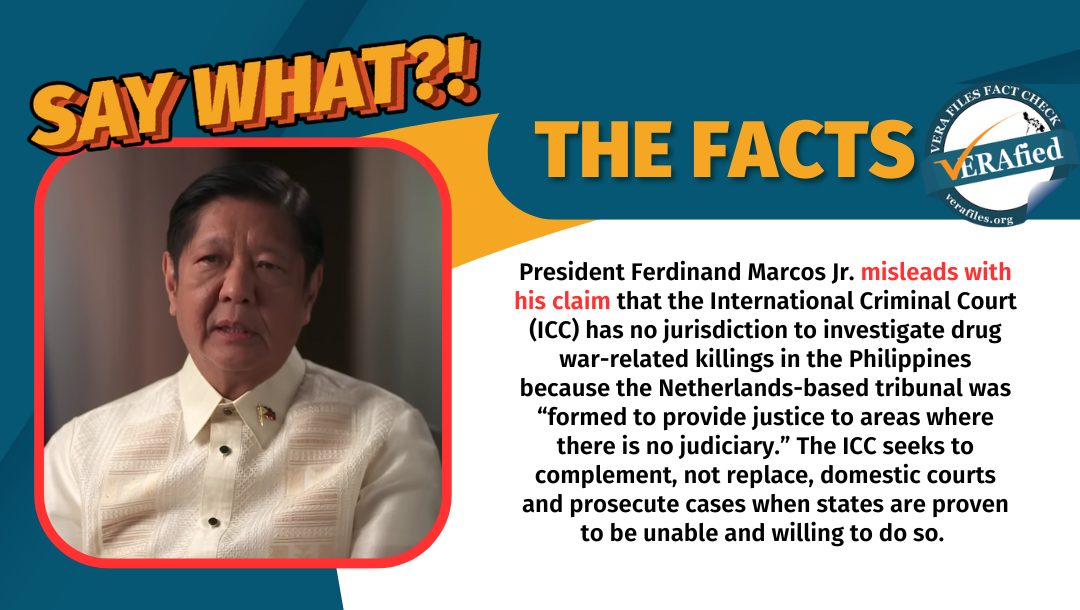
The first part of the treaty explains the establishment of the court and Article 1 states that ICC has the power to exercise its jurisdiction for most serious crimes of international concern and “be complementary to national criminal jurisdictions.”
Under its complementarity principle, the ICC has made clear that it does not intend to replace domestic courts and that it only prosecutes cases when states are proven to be unwilling or incapable of doing so.
BACKSTORY
In July 2022, ICC prosecutor Karim Khan requested the resumption of the investigation of alleged crimes against humanity under the Duterte administration’s drug war from July 1, 2016 to March 16, 2019 and in the Davao region from November 2011 to June 2016.
Opposing Khan’s request, the Marcos administration submitted a 62-page document to the Pre-Trial Chamber I on Sept. 8, 2022. The government argued that the Philippines had a functioning criminal justice system and that the gravity of the alleged crimes did not warrant a probe by the ICC.
However, on Jan. 26, 2023, the Pre-Trial Chamber granted Khan’s request, pointing out that the Philippine government’s proceedings “do not amount to tangible, concrete and progressive investigative steps” that would sufficiently mirror ICC’s probe and justify its suspension.
It further explained that the investigation of the drug war done by the Philippine government covered only “low-ranking” police officers and failed to probe into the systemic nature of the crimes or identify the “most responsible” officials.

